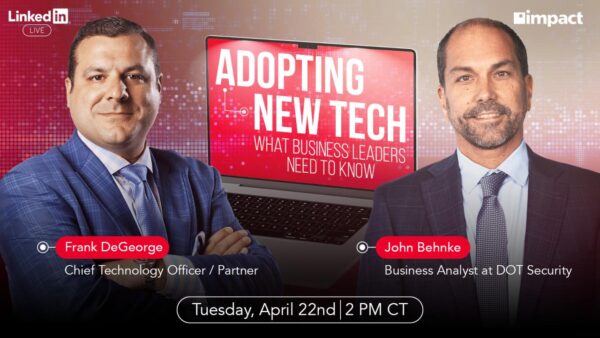Think beyond the obvious ways to diversify.
There is more to diversification than meets the eye for office technology dealers looking to exit the traditional office copier/MFP rut. Sure, office copiers/MFPs are the foundation of virtually every office technology business, but most office technology dealers cannot survive on legacy office print technologies alone.
Diversifying your product offerings is a reasonable recommendation in light of declining clicks and trends such as digital transformation, where new opportunities abound. There are many ways to diversify, and we explore several elsewhere in this issue. The following under-the-radar diversification opportunities may not have as high a profile as production print, packaging, inkjet, managed IT, and VoIP, but they are still worthy of your consideration.
1. Scanning Services
Applied Innovation in Grand Rapids, Michigan, formerly partnered with other organizations to help customers digitize legacy records. Three years ago, it merged the company’s document management software initiatives with its back-file scanning services, offering them as a complementary solution. “If you have a full backlog, we’ll digitize those and give you a go-forward strategy,” explained Andrew Reed, software sales manager. “Our main goal with the scanning services is to get a foot in the door on the software side. However, if it’s just a straight scanning opportunity, we’ll run with that as well.”
Applied Innovation uses scan capture technology, which takes a document—paper or electronic—and, using optical character recognition (OCR), extracts specific data fields based on criteria identified by Applied Innovation or the customer. Using an invoice as an example, the software will extract the vendor’s name, date, invoice number, and amount. Those are extracted as index values and can then be added to a CSV (common-separated values) file, or into an ERP or document management system. Electronic documents can also be pulled from an email inbox or a shared folder on a network.
The dealership aims to make its scanning services, which it calls “capture-as-a-service,” as easy as possible for customers. “Anytime you throw ‘as-a-service’ onto something, you try to make it as toggle on, toggle off as possible,” said Reed. Applied Innovation will work with whatever hardware is currently used in the customer’s environment, whether it was sold to the customer by Applied or a competitor. “The hardware infrastructure doesn’t matter as long as they can get that document, whether paper or electronic, into a specific folder or email inbox that we might be sweeping,” he added.
The subscription price for the service is based on annual volume. “We’ll go at it with our best guess for year one, then look at where we ended up usage-wise in year two and fluctuate those volumes in terms of commitment,” said Reed. “We try to aim for ongoing engagement—so, a process that isn’t going away, like invoice processing—anything to get that recurring revenue stream, much like the copier industry with maintenance and MPS agreements. We want to try to stay away from those one-time transactions, but we will sell the service as project-based if we have to.”
This service sometimes dovetails with Applied Innovation’s ShredHub, which offers shredding services. “Our truck will go and grab those documents and destroy them and provide a certificate of destruction,” said Reed. “We can handle everything document-related from beginning to end.”
2. Marketing Services
Impact Networking’s Impact Managed Marketing division focuses on building a marketing system for clients that achieve business goals such as lead generation, recruitment, and market expansion. “The system that we built is industry agnostic, meaning that we can write, develop, and market for any industry or business,” explained Aaron Dyck, president of Impact Managed Marketing. “Marketing services go beyond just building a website,” which Impact Networking offered before creating Impact Managed Marketing.
Dyck considers marketing services an offensive play. “If you look at cybersecurity and IT, those are defensive plays for businesses,” he said. “They’re investing in it to defend their business against cyberattacks. Marketing is about looking at and understanding that the competition has a target on your back, and you need strategies and ideas to be offensive to get [your brand] out there and get the consumer’s attention. We want to build a strategy that helps people achieve lead generation or recruitment with their marketing. We can measure the success of that and have fact-based conversations with our clients about what’s working and what’s not working so we can adjust the strategy.”
The ideal client profile is small- to medium-sized businesses with $25 plus million in revenues that want to grow their business, believe that marketing is critical to their success, and want to establish a long-term partnership for marketing.
For other dealers looking to offer marketing services, Dyck recommends starting small and building a business model that focuses on charging for various marketing-related services. “The assessment aspect of this is very important,” he said. “The amount of money you charge for an assessment or the expertise that you’re providing should be well compensated for, and that builds value. Qualify your clients upfront and be specific in the services you will deliver. It takes a lot of technology, people, strategy, and ideas.”
3. EV Chargers
The number of electric vehicles worldwide is on the rise. Two of my last three Uber rides were in electric vehicles, and one driver was leasing his electric vehicle directly from Uber. It’s only a matter of time before more service vehicles go electric. And as the number of electric vehicles multiplies, so will the need for charging stations. I’m experiencing this close to home where my partner’s engineering and architectural firm regularly includes electric charging stations in their design specs. These stations are now found in specs for office buildings, parking garages, stadiums, entertainment facilities, and transportation hubs.
As that happens, someone must sell, install, and service them. Why not an office technology dealership with an existing service infrastructure? According to Mark Hart, vice president of marketing and business development at ACDI, the companies that make these charging stations don’t have the bandwidth to sell and service them. That’s why ACDI is bringing this diversification opportunity to office technology dealers.
One of those dealers is Mark VanDenHoek, president of Office Advantage in Sioux Falls, South Dakota. In a 2022 interview with The Cannata Report, VanDenHoek identified medical facilities, municipalities, entertainment facilities, and restaurants as target locations. Multifamily dwellings, builders, and architects are also targets. “We’re very rural, but that’s okay,” VanDenHoek told us. “We’re going to be out in front of some other vendors. I’m both excited and concerned about how quickly it will take off and where the need will be.”
4. Mailing Equipment
I used to write about mailing equipment and attend National Postal Forums from the early 1990s into the early 2000s. Since then, this product segment has been out of sight, out of mind until this year’s Executive Connection Summit (ECS) when Mike Hannon, managing director, North America, FP Mailing Solutions, informed the audience about the United States Postal Services’ scheduled move to a new postage meter and PC postage-evidencing technology called Intelligent Mail Indicia (IMI) in 2024. This will replace the current Information-Based Indicia (IBI).
As a result, mailers must update—or digitally transform—their postage meters and PC postage systems. According to Hannon, this is a great opportunity for office technology dealers, especially since nearly 650,000 postage machines must be replaced.
Of course, this isn’t something new. Some office technology dealers still offer mailing equipment, including folder inserters and software, but for those who don’t or exited that business, maybe it’s time to reconsider. FP Mailing Solutions wouldn’t have traveled to ECS to make its pitch if it didn’t see an opportunity.
5. Water and Ice
I remember attending BTA conferences in the 1990s and seeing exhibitors marketing water systems. Historically, this was more of an offering for traditional office product dealers. However, as the office product superstores decimated the office product dealer ranks, this created opportunity for office technology dealers looking for an add-on product/service to provide to their customers. Like mailing systems, it’s not new, but another diversification opportunity to reconsider.
Kelly Office Solutions in Winston-Salem, North Carolina, has a Pure Technology division that sells water, ice machines, coffee, and air purification systems. As Brice Renegar, who leads Kelly’s Pure Technology division, told The Cannata Report in 2021, “We started as a simple water sales company, and the further we progressed in it, it sounded natural to start selling ice and coffee because they go hand in hand.” Ice machines are one of the division’s top sellers, and, according to Renegar, require minimal service. And minimal service = profitable service contracts.





